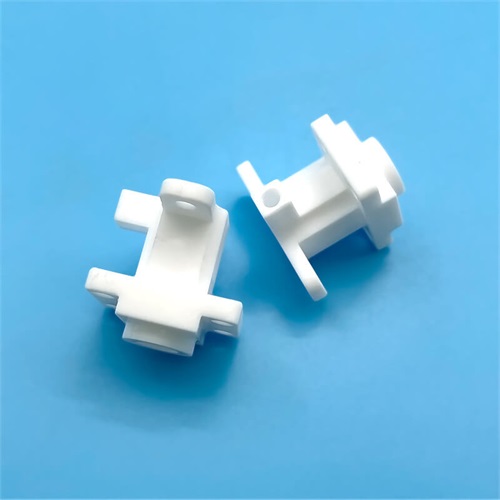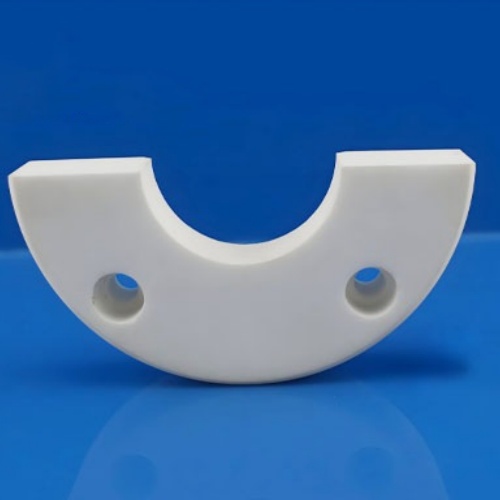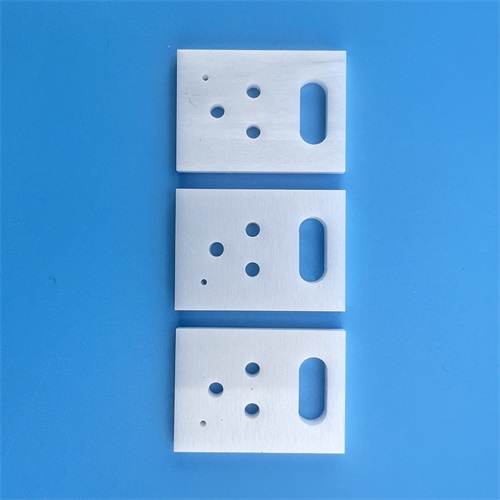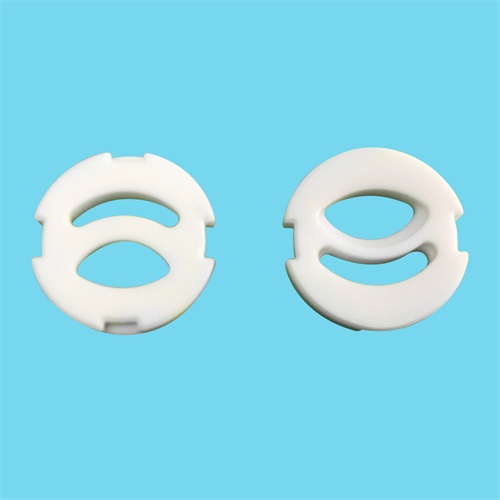What are the advantages of low-density Macor glass ceramics
Macor glass ceramic is a high-performance engineering material developed by Corning in the United States, with unique physical and chemical properties. Its low-density characteristics make it stand out in many industrial applications, especially in the fields of aerospace, semiconductor manufacturing, medical equipment, and precision instruments.

Basic characteristics of Macor glass ceramics
Macor is a machinable glass ceramic composed of approximately 55% fluorobiotite and 45% borosilicate glass. This combination endows it with excellent mechanical strength, high temperature resistance, electrical insulation, and chemical stability. Its low density (about 2.52 g/cm ³) makes it lighter than many metal and ceramic materials while still maintaining excellent performance.

Core advantages of low-density Macor glass ceramics
lightweight design
-Reducing equipment weight: Macor’s density (2.52 g/cm ³) is much lower than metals (such as 7.85 g/cm ³ for steel and 2.7 g/cm ³ for aluminum), making it an ideal material for lightweight design, such as aerospace and drone structural components.
-Reduce inertia: In precision instruments and optical systems, low density helps to reduce the inertia of moving parts, improve response speed and accuracy.
Excellent mechanical performance
-High strength to weight ratio: Despite its low density, Macor has a flexural strength of approximately 100 MPa and a compressive strength of up to approximately 500 MPa, making it suitable for high load environments.
-Machinability: Macor can be turned, drilled, milled, and tapped using standard metalworking tools without the need for sintering or special treatment, reducing manufacturing costs.
Excellent thermal performance
-High temperature resistance: Macor can operate stably at temperatures up to 800 ° C and has a thermal expansion coefficient (9.3 × 10 ⁻⁶/° C) similar to most metals, reducing thermal stress issues.
-Low thermal conductivity (1.46 W/m · K): Suitable for insulation applications, such as thermal barriers in semiconductor devices.
Excellent electrical insulation performance
-High resistivity (>10 ¹⁴Ω· cm): Macor can maintain excellent insulation performance in high temperature and high voltage environments, suitable for vacuum electronic devices, high-voltage insulators, etc.
-Low dielectric constant (6.1 at 1 MHz): Suitable for high-frequency electronic applications such as microwave windows and radio frequency components.
chemical stability
-Corrosion resistance: Macor has excellent corrosion resistance to most acids, bases, and organic solvents, making it suitable for chemical equipment and biomedical environments.
-Vacuum compatibility: Its extremely low gas permeability and release rate make it an ideal material for vacuum systems such as particle accelerators and semiconductor manufacturing equipment.
biocompatibility
-Non toxic and non-magnetic: Macor does not contain heavy metals or harmful substances, suitable for medical implants, surgical tools, and MRI equipment components.
dimensional stability
-Low creep and low thermal deformation: Even in long-term high-temperature environments, Macor can maintain stable dimensional accuracy, making it suitable for precision optical and semiconductor manufacturing equipment.

Application areas of low-density Macor glass ceramics
EADS
-Used for satellite mounts, rocket nozzle insulation layers, aviation electronic equipment insulation components, etc., to reduce weight and improve heat resistance.
Semiconductor Manufacturing
-As an insulation bracket and plasma etching component for wafer processing equipment, it avoids metal contamination and provides thermal stability.
medical equipment
-Used for surgical robot components, X-ray equipment insulators, dental restoration materials, etc., it combines lightweight and biocompatibility.
precise instrument
-Used for optical frames, laser components, high-precision measuring equipment, ensuring low thermal deformation and high stability.
Energy and Vacuum Technology
-Used as an insulator for nuclear fusion devices, particle accelerator components, and capable of withstanding extreme temperatures and radiation environments.

Low density Macor glass ceramics have become a key material in high-end manufacturing due to their advantages of lightweight, high strength, high temperature resistance, electrical insulation, chemical stability, and biocompatibility. Its unique performance combination makes it irreplaceable in industries such as aerospace, semiconductor, medical, and precision engineering.
Brudeze Ceramics supplies and sells a wide range of high-quality quartz glass, including alumina ceramics, zirconia ceramics, silicon nitride ceramics, aluminum nitride ceramics, silicon carbide ceramics, boron carbide ceramics, bioceramics, machinable ceramics, etc. We can meet the customization requirements of various ceramic products.
Tags: boron carbide ceramics
PREVIOUS:What are the applications of Macor ceramics in high-voltage electrical equipment
NEXT:What are the safe applications of Macor ceramics in the nuclear industry
CATEGORIES
LATEST NEWS
- Characteristics and Applica...
- The use of aluminum nitride...
- Performance and characteris...
- Characteristics and Applica...
- The method of polishing alu...
- Precautions for cleaning an...
- What are the advantages of ...
- What are the characteristic...
- What are the characteristic...
- What are the characteristic...
